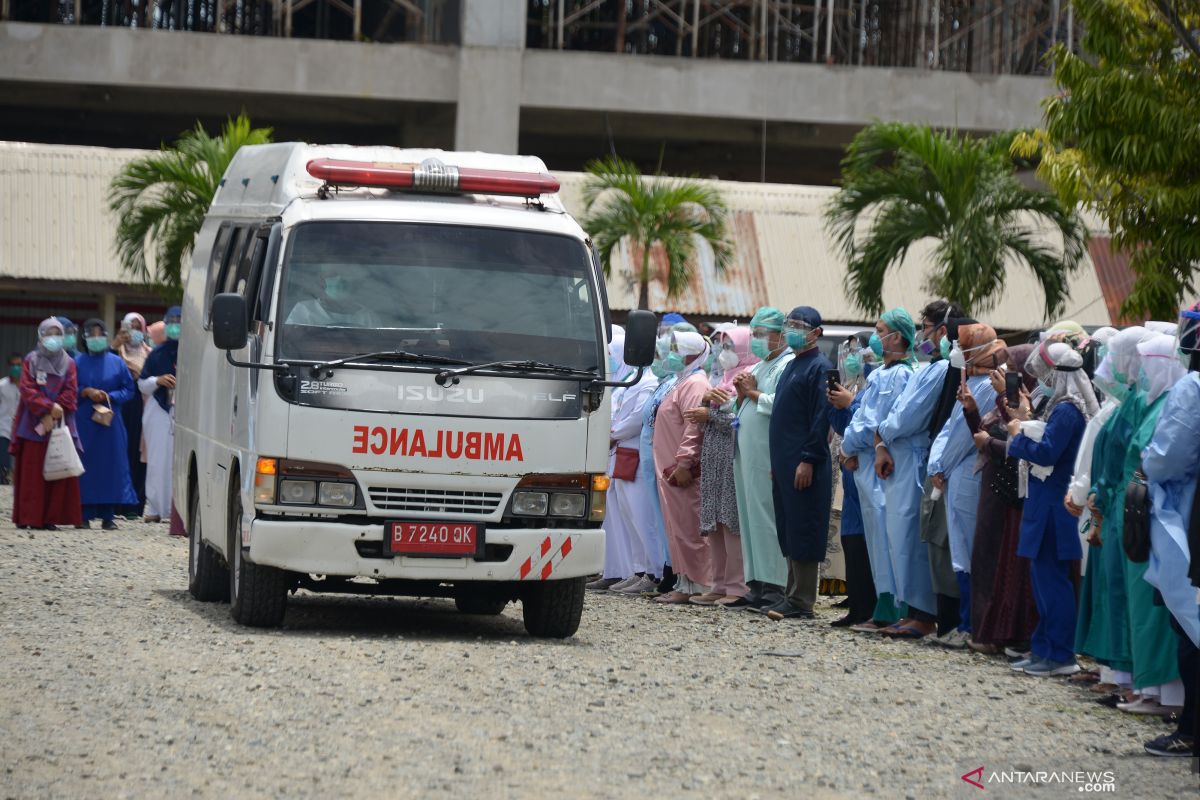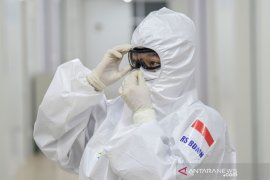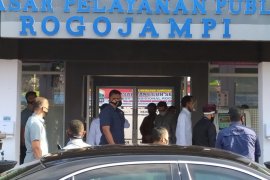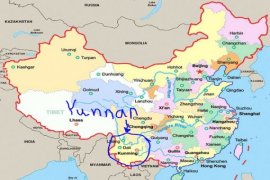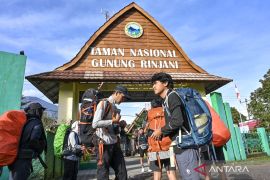In connection with family and office clusters, we feel safe at home and office, so we forget to implement preventive measures as mandated by health protocolsBogor, W Java (ANTARA) - For Indonesia, which has been striving to flatten its coronavirus curve since March, 2020, the past two weeks have thrown up a worrying trend.
The country has recorded a spike in the COVID-19 infection rate, with over three thousand new cases added daily. Added to this is the fact that more than 100 frontline doctors have succumbed to the infection.
On September 3, 2020, for instance, 3,622 new cases were reported over a 24-hour period, and on September 8, Indonesia recorded 3,046 fresh infections, which brought the total tally of confirmed COVID-19 cases to 200,035.
The newly-infected patients include four members of Riau Province's legislative body. The legislators, identified by their initials as A, M, NZ, and MA, are currently being treated at a local hospital in Pekanbaru, the capital of Riau Province.
Head of the legislative body's Commission I, Ade Agus Hartanto, said that A and M tested positive for coronavirus after paying an official visit to Jakarta. Then, two other legislators also got infected after undergoing swab tests.
The current COVID-19 pandemic situation in Indonesia is a bit distressing, according to spokesperson for the government's COVID-19 Task Force, Wiku Adisasmito.
He surmised that the increase in cases may partly be attributed to the recent long holidays, during which, many people traveled to tourist sites and did not strictly abide by COVID-19 preventive measures.
This challenging condition must serve as a lesson for all regarding the importance of maintaining discipline in enforcing the health protocols, added Adisasmito, who is a public health expert from the University of Indonesia (UI).
Indeed, the key to the government's endeavors to revive the country's economy is first and foremost related to its success in restoring public health.
Aware of the importance of public health, President Joko Widodo (Jokowi) has emphasized that public safety is the government's priority in coping with the far-reaching public health and economic consequences of the ongoing pandemic.
To this end, the government has put in place extraordinary policies for handling the twin crises, he informed participants of a meeting on auditing the state's finance in response to the COVID-19 pandemic, at the State Palace on Tuesday.
"All measures must be taken as quickly as possible, with simple procedures, for the sake of public safety. The people's safety is far superior than the complicated procedures that we make ourselves," he noted.
To flatten the curve of coronavirus cases, President Jokowi has again asked members of his Indonesia Onward Cabinet to adopt requisite measures to halt the spread of COVID-19 infections emerging from office, family, and regional election clusters.
Speaking at a cabinet meeting on handling health and economic recovery issues to strengthen reformation early this week, Jokowi affirmed that COVID-19-related prevention and mitigation efforts are primarily targeting public places.
Jokowi said office and family clusters have been partly responsible for the spread of COVID-19 among members of communities since people may have felt a sense of safety and hence relaxed the application of COVID-19 precautionary measures.
"In connection with family and office clusters, we feel safe at home and office, so we forget to implement preventive measures as mandated by health protocols," President Jokowi pointed out.
President Jokowi's concerns over office clusters were confirmed by the head of the Jakarta Provincial Government's Health Office, Widyastuti.
She admitted that the spike in new cases in the country's capital was mostly observed in settlement and office clusters.
In Bogor, West Java province, family clusters became key contributors of new cases in the city, Bogor Mayor Bima Arya Sugiarto noted, adding that as of August 30, 2020, a total of 48 family clusters, with 189 confirmed cases, had come to light.
Meanwhile, the Indonesian Medical Association (IDI) reported several violations of the health protocols during the registration process for candidates contesting this year's regional elections, held on September 4-6.
The violations were observed in cities and districts such as Medan in North Sumatra, Solo in Central Java, Karawang district in West Java, and Surabaya in East Java, where people had gathered in motorcades to show their support for candidates.
For this year's regional elections, which will be held simultaneously in nine provinces, 224 districts, and 37 cities on December 9, President Jokowi has ordered Home Minister Tito Karnavian and National Police Chief Gen. Idham Azis to take strict action to prevent the spread of the COVID-19.
In the battle against the COVID-19 pandemic, the government has applied three strategies for ensuring the availability of COVID-19 vaccines for its people. The first includes working towards securing vaccines produced by foreign parties all over the world.
The second strategy aims at promoting research and production collaborations of Biofarma, universities, as well as domestic and foreign institutions, while the third approach is supporting the Eijkman Institute for Molecular Biology's research on its coronavirus vaccine.
Although the COVID-19 vaccine would be important in aiding the fight against the virus and for reviving the economy, the vaccine itself should not be regarded as the only solution to tackle the pandemic.
People need to inculcate self-discipline, patience, and persistence in practicing the preventive measures mandated by the government's health protocols anytime they venture outdoors.
There is a need to exercise discipline in terms of wearing face masks, washing hands, and maintaining social and physical distancing to ensure that hospitals and paramedics do not get overwhelmed by the soaring number of COVID-19 cases. (INE)
Related news: Recent swab tests confirm four legislators in Riau contracted COVID-19
Related news: Indonesia adds 2,306 recoveries, tally reaches 142,958
EDITED BY INE
Editor: Fardah Assegaf
Copyright © ANTARA 2020
